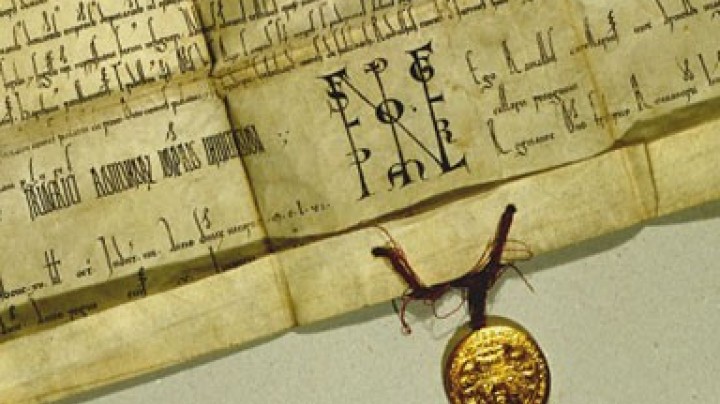Places of learning: schools
The new administrative tasks required people who could read – the consequence was a boom in education.
With the spread of reading and writing outside the ecclesiastical sphere, a secularization of education began to take place during the fourteenth and fifteenth century. It was however not only administrative and economic necessities but also the ideas of humanism that prepared the ground for the interest in acquiring knowledge. Erasmus of Rotterdam considered that it was upbringing and education which enabled Man to comprehend the world. According to Erasmus, education ‘raises him above the level of beasts and ultimately constitutes his humanity’.
The school system was reorganized: monasteries, churches and cathedral schools as educational establishments for internal and external pupils were no longer adequate for the new demands of society. Towns and cities became centres of education, but even as early as the fourteenth century many villages had parish schools or schoolmasters. The aim of this education was to train up boys for the priesthood, but also to spread the skill of reading and propagate religious doctrine. Town schools and ‘Latin schools’ were also linked to religious life, with the focus being on the mastery of Latin. Evidence of lessons being given in vernacular languages is not extant until the fifteenth century.
A precursor of primary education was the ‘German school’. It was financed either privately or by the town and was intended for the children of the middle classes: here they learnt reading, writing and arithmetic, and how to handle coinage and the system of weights and measures. These schools were also open to girls from the upper strata of the urban population; until the late Middle Ages their only access to education had been at home or in convents. In rural areas they were also permitted to attend parish schools. Now girls’ schools with female teachers were established, whereas the Latin schools and universities were open only to boys and young men.
In noble and patrician circles private tutoring was the predominant form of acquiring knowledge. Students or clergymen taught pupils in their own homes.















